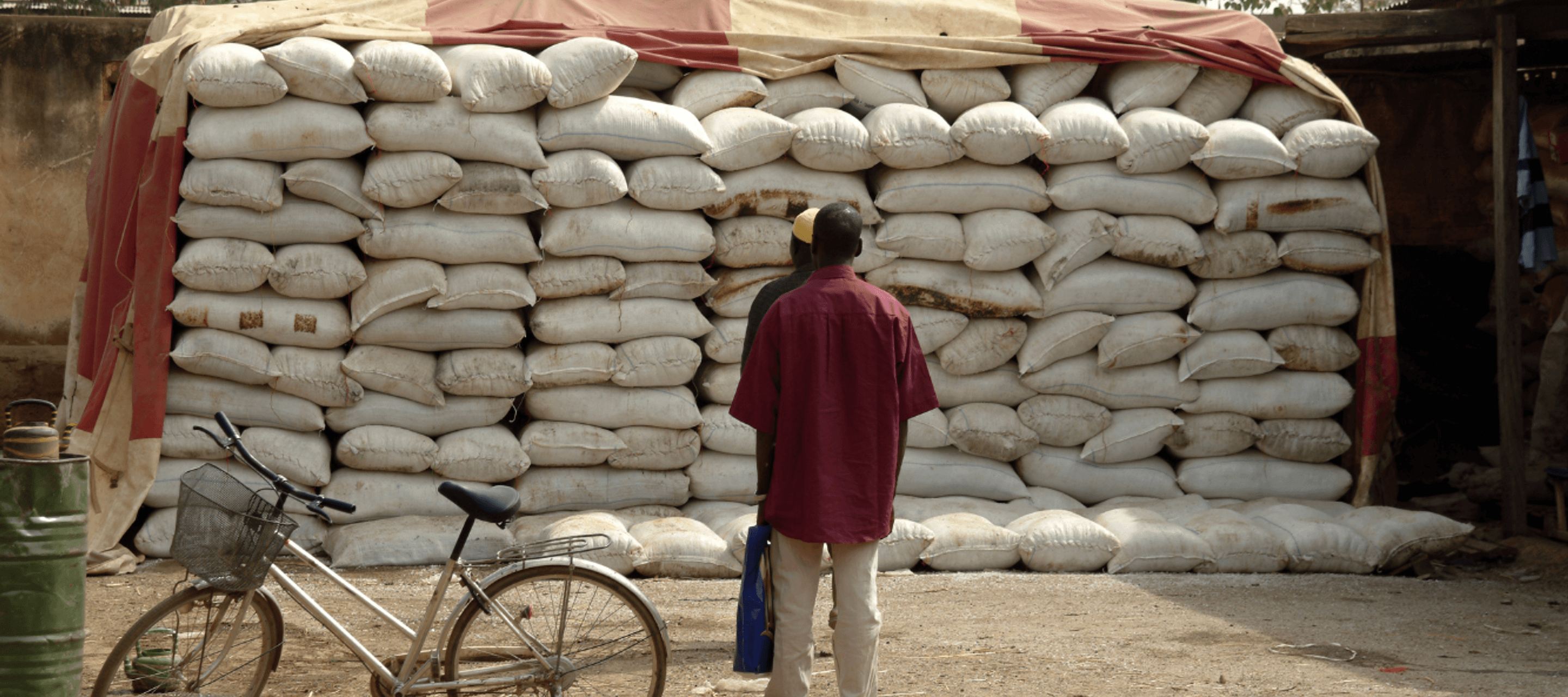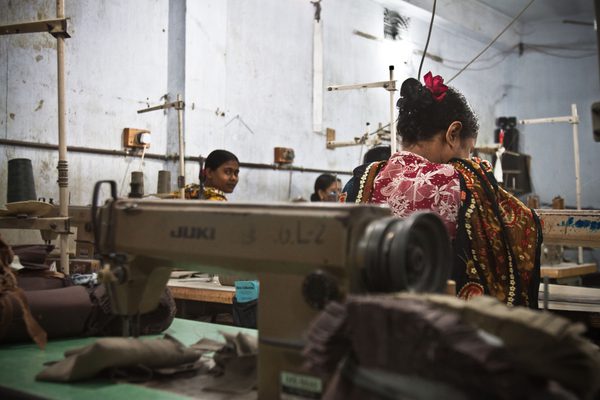Lessons from CIIR for the Business and Human Rights Movement
26 November 2020

IHRB’s 10th anniversary report rightly notes the business and human rights (BHR) movement’s history predates its visibility over the last couple of decades, with multiple actors nurturing its evolution.
My recent work writing A Record of Change in a Changing World, a history of the UK’s Catholic Institute for International Relations (CIIR), sketches one civil society story underlying a wider narrative of unfinished progress.
CIIR closed in 2017, a casualty of the challenging UK political environment affecting NGO funding. Its closure was a milestone in view of the organisation’s contribution to the UK’s international development sector, itself facing mounting challenges since. CIIR’s 76-year legacy of work for a fairer world included important forays on BHR, whose value is still relevant in today’s turbulent times.
Pioneering roles
Originally founded as the Sword of the Spirit in 1940 to promote Catholic and wider ecumenical and lay action on the peace, human rights and social justice challenges of the Second World War and European reconstruction, CIIR became an influential force from the mid-1960s in the UK’s emerging development NGO sector, working with people of all faiths and none. Its impact transcended the organisation’s small size.
CIIR pioneered the practice of what NGOs later called ‘advocacy’, urging UK and international action to support struggles in Latin America, South East Asia, and Southern Africa for ‘development justice’. Alongside its ground-breaking policy work, it also won a lasting reputation for the strengths of its secular overseas programme. Placing internationally recruited ‘development workers’ with specialist expertise requested by country partners in the global South, this provided sustained practical support on-the-ground for organisations and communities working for pro-poor change. The aim, in contrast with Northern recipes for catch-up development modernisation, was to support and enhance partners’ own home-grown strategies and strengths.
CIIR was an early caller for human rights due diligence before the term gained currency.
CIIR, though not a dedicated BHR organisation, engaged productively with the CSR, corporate accountability, and international human rights law traditions. Its vast array of rights-based work – on health, education, HIV/AIDS, race and ethnicity, gender, economic justice, livelihoods, the environment, climate change, conflict and peace, democratic participation and governance – put it in a strong position to drive its own BHR initiatives and help incubate catalytic ventures with others.
Early calls for due diligence
In the early 1970s, in response to apartheid, CIIR helped create and support the inter-denominational Christian Concern for Southern Africa, which went on to play a significant role on the human rights impacts and responsibilities of businesses and banks investing in South Africa and Namibia. Such actions led in the UK to ethical investment initiatives such as EIRIS.
CIIR was an early caller for human rights due diligence before the term gained currency. In the early 1980s it took to task the Commonwealth Development Corporation, the UK’s development finance body still the focus of divided opinions and criticism today. The CDC had backed palm oil companies in the Philippines, despite evidence their access to land had been secured with the violent aid of right-wing paramilitaries.
A CIIR-coordinated group of UK NGOs would later urge BP to adopt policies and practices upholding human rights. The move followed allegations of company complicity with repression by security forces protecting oilfields in conflict-affected Colombia.
Getting to grips with globalisation
The 1990s saw CIIR undertake advocacy on the labour and human rights problems of UK-linked global supply chains in the toy, garment, and electronics sectors, working with Asian CSOs and UK trade union and NGO partners such as Labour behind the Label and Women Working Worldwide. This contributed to momentum that led to creation of the Ethical Trading Initiative in 1998.
A constant in CIIR-Progressio’s experience was that ‘development’ driven by the powerful was all too often a violent process; economic growth was no automatic guarantee of equitable social progress.
CIIR and the New Economics Foundation also produced, on behalf of UK development agencies, one of the first systematic assessments of business codes of conduct and possible avenues for greater corporate accountability. Its survey work showed low UK business awareness of the OECD’s Guidelines for Multinational Enterprises, with resulting calls for UK government action as it prepared to establish a National Contact Point.
Building on CIIR’s strong record supporting small-scale farmers and rural development NGOs, sustainable agriculture and pro-poor natural resource management became the main focus of the organisation’s advocacy campaigns from the mid-2000s when CIIR adopted Progressio as its new working name.
Sustainability or the violence of ‘development’?
With deforestation and natural resource exploitation fuelling the climate crisis and damaging people’s livelihoods and rights, Progressio argued that an environmentally sustainable future should be built on policies favouring the poor and oppressed. A constant in CIIR-Progressio’s experience was that ‘development’ driven by the powerful was all too often a violent process; economic growth was no automatic guarantee of equitable social progress.
One of CIIR’s strengths was its commitment to empowering the capacity, voice, and influence of partners in the global South, a trait with resonance amid debates on the future of aid and the challenges facing international NGOs.
For example, marshalling evidence gathered with partners in Ecuador and Honduras, CIIR-Progressio joined forces with other NGOs to tackle illegal logging. In 2010, its campaign won a commitment by the European Union to introduce its 2013 timber regulation, requiring business due diligence to curb the entry and sale in EU markets of wood and wood products linked to illegal logging.
The organisation also lent its support to action against conflict minerals coordinated by CIDSE, the Catholic social justice network, whose efforts have now seen 230 bishops add their voice to calls for mandatory human rights due diligence.
Recent reports and events and civil society studies suggest the BHR community is now paying greater attention to gender. Again, CIIR-Progressio aided this trend, drawing on its decades-long commitment to women’s rights. In 2015, on behalf of the UK’s corporate responsibility network CORE, its policy submissions with ActionAid highlighted neglect of gender in the British government’s national action plan on the UN Guiding Principles. It also supported Essex University research providing some of the first detailed guidance on gender-focused due diligence.
CIIR’s legacy and the future of business and human rights
One of CIIR’s strengths was its commitment to empowering the capacity, voice, and influence of partners in the global South, a trait with resonance amid debates on the future of aid and the challenges facing international NGOs. Such debates are relevant to the business and human rights ‘movement’ which, despite the steady growth and dynamism of organisations in the South, still tends to be largely shaped at a global level by Northern players.
For CIIR, international relations were not just about the elite-driven interaction of states, but forging bonds between people everywhere striving for social justice and a fairer world.
Another strength was CIIR’s emphasis on grappling with the politics of development change and the power relations involved. This is likewise a very pertinent issue today, not least in the context of the Sustainable Development Goals with which systematic BHR connections need to be made, as in relation to the rights of workers in supply chains.
Underlying the SDGs remain major tensions over the economic policies required to achieve them. Long the focus of civil society advocacy, this sphere of critical debate and action has acquired even greater significance amid the surging inequalities of wealth and power brought into sharper relief by COVID-19 and the unfolding climate crisis. While driving improvements in business practices on human rights remains crucial for the BHR community, pressure to change the overall economic governance and business models they are part of may increase. Dominant approaches to ‘globalisation’ have been associated with many of the human rights and sustainable development problems encountered by CIIR, and the generally patchy social record of the policies involved has contributed to the rise of the nationalist authoritarian threats identified in IHRB’s 10th anniversary report.
For CIIR, international relations were not just about the elite-driven interaction of states, but forging bonds between people everywhere striving for social justice and a fairer world. The narrowly defined ‘national’ interest of states had to be reframed around pursuit of this wider social and political purpose. The need for what some now dub a ‘global reset’ is not new, but it is taking an urgent new turn in the fragmenting polarisation of a world itself in peril.
Jon Barnes, a freelance writer and IHRB research fellow, worked for CIIR in the 1990s.




